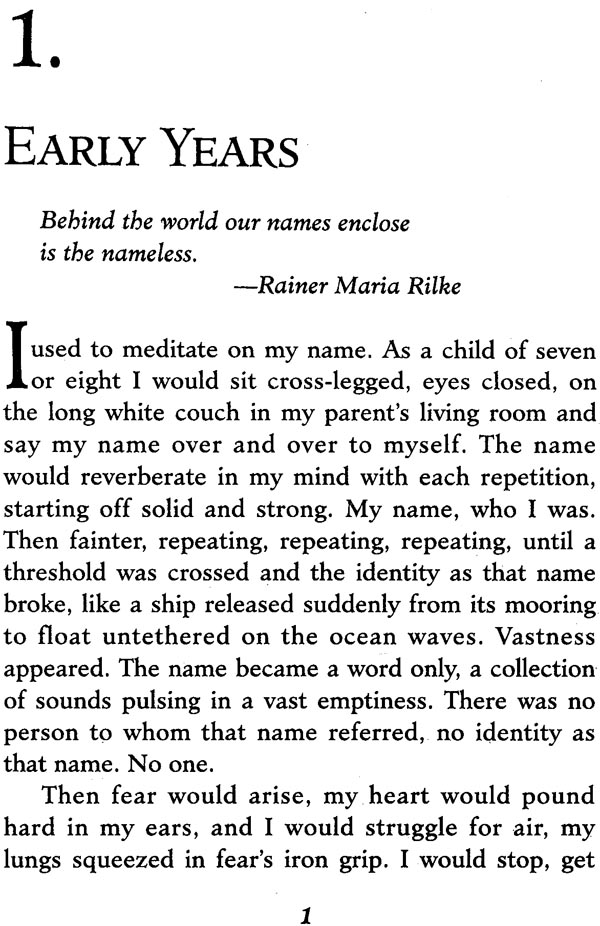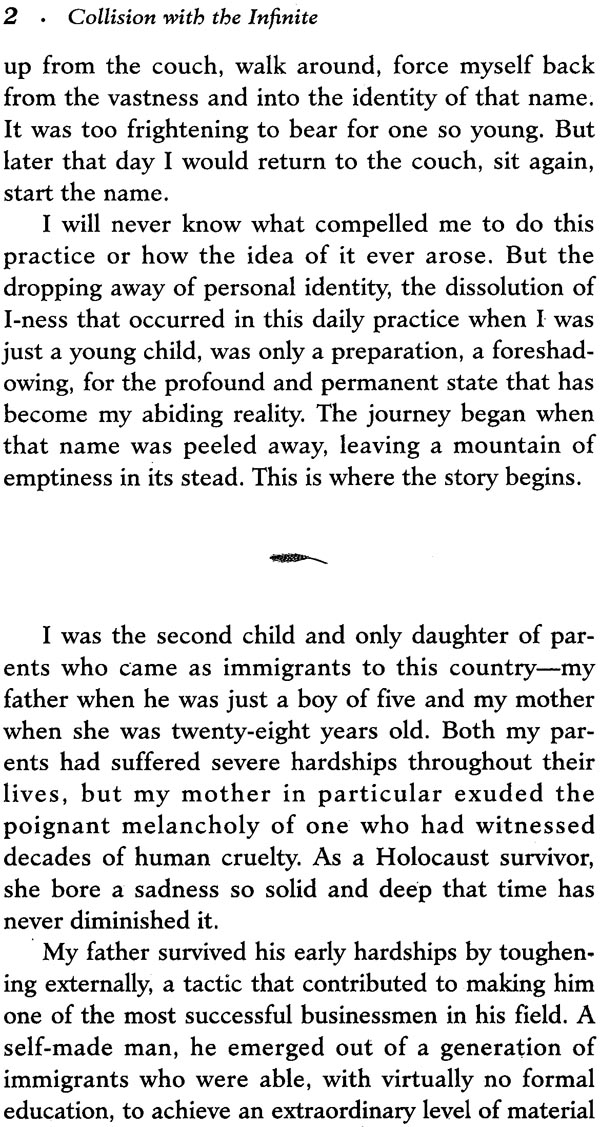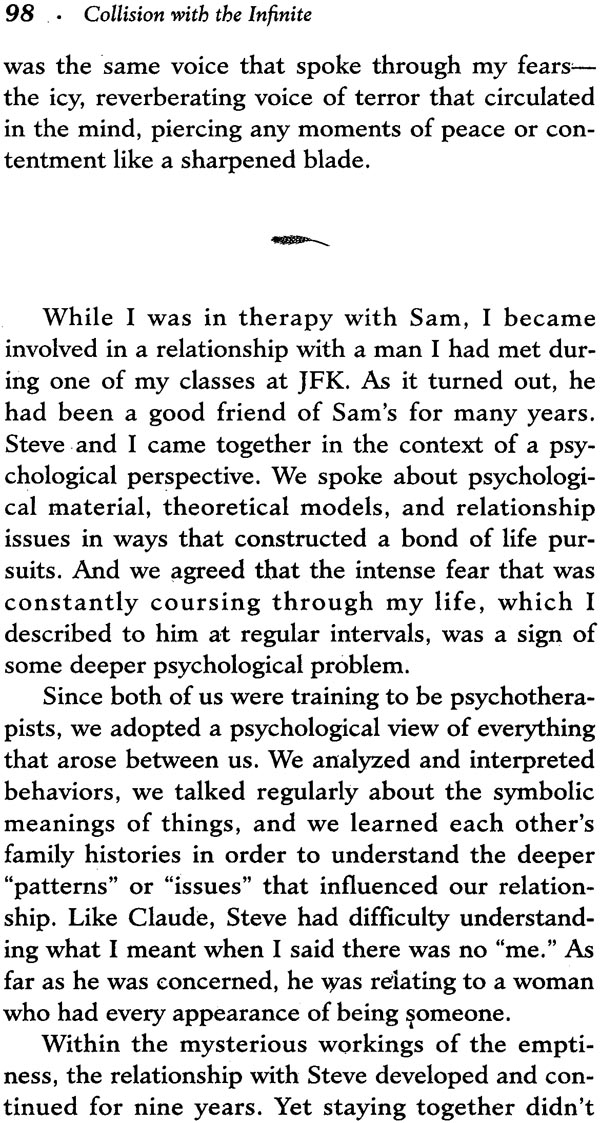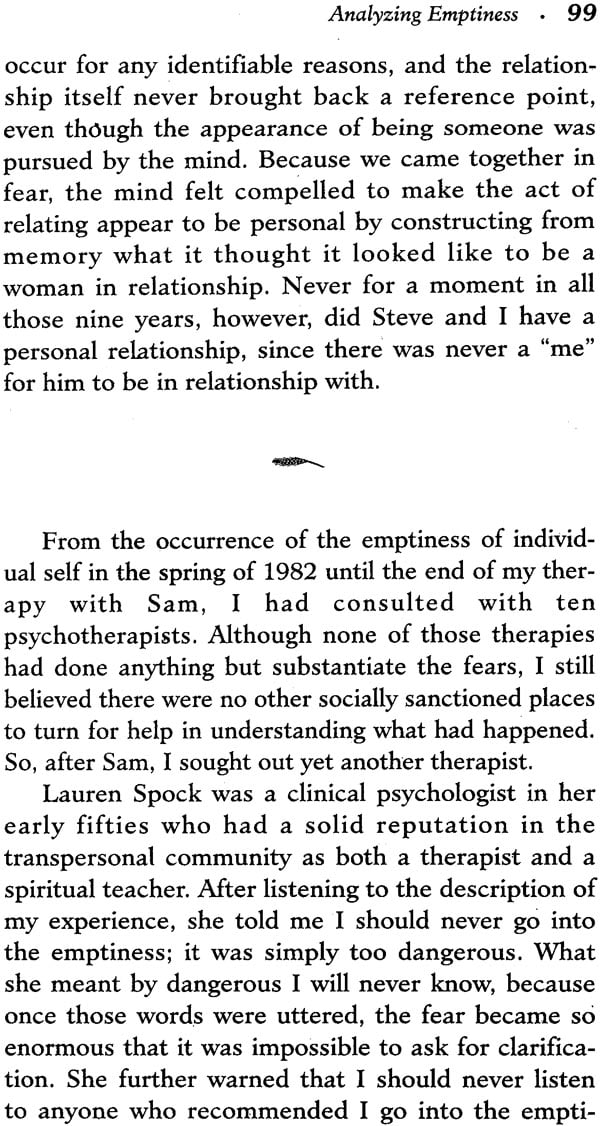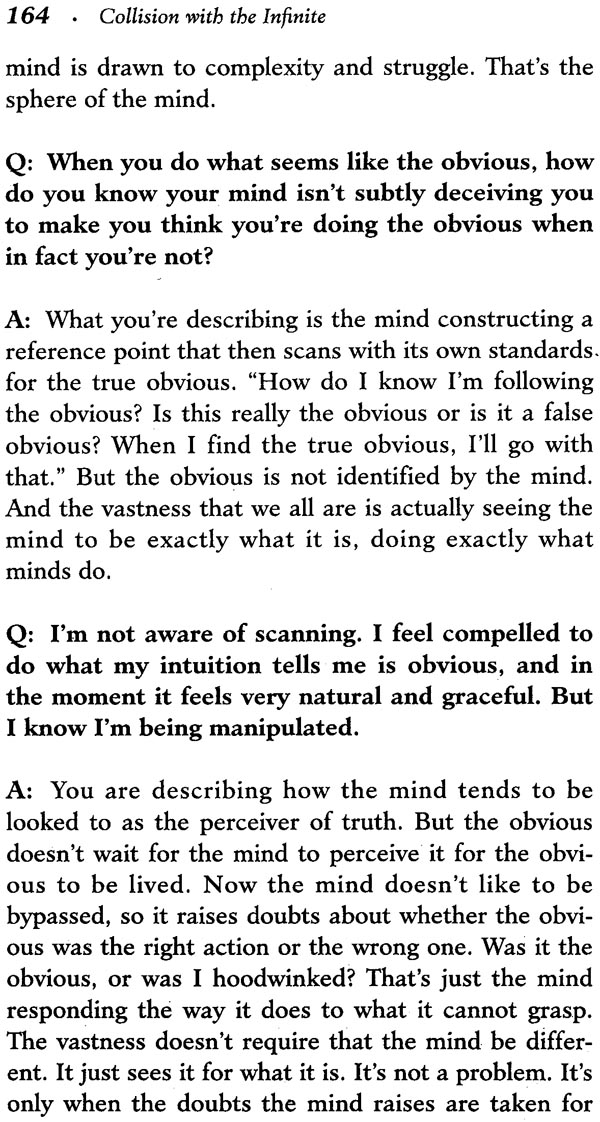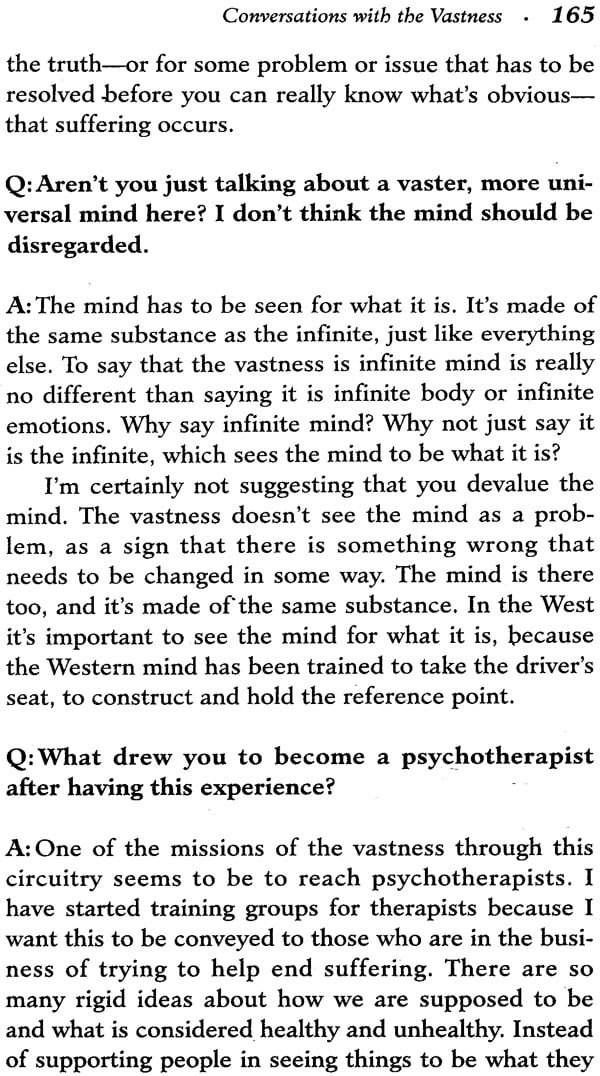
Collision with The Infinite
Book Specification
| Item Code: | NAU708 |
| Author: | Suzanne Segal |
| Publisher: | Motilal Banarsidass Publishers Pvt. Ltd |
| Language: | English |
| Edition: | 2009 |
| ISBN: | 9788178221137 |
| Pages: | 189 |
| Cover: | PAPERBACK |
| Other Details | 8.50 X 5.50 inch |
| Weight | 220 gm |
Book Description
As Westerners seeking spiritual transformation, we need to help each other out by sharing our stories. Since we encounter spiritual experiences in ways that Easterners do not, we need to gather our accounts of transformation in order to create new "ancient texts" that provide Western-style maps of the spiritual territory. The stories of the ancestors described a road that has since seen new construction erected along its course. It's like that with roads. Just when we think we know them perfectly, someone comes along and builds new gas stations or traffic signals or grocery stores, and we have to orient ourselves all over again using new landmarks.
The story that follows is my contribution to the modern version of the ancient texts. It is an account of the fourteen-year aftermath of a complete and irrevocable shattering of personal identity, a permanent switching off and falling away of everything III had called my individual self. This profound transformation has been described, in many of the classic spiritual texts of the East. However, because of my cultural beliefs, upbringing, values, and fears, I encountered it in a particularly Western fashion. The experience was so different from anything I had previously imagined or conceived that its impact took more than a full decade to assimilate. During that time I searched for written accounts of similar experiences that might help me through the most challenging and terrifying times of the mind's response to the totally ungraspable emptiness of "meness," but I found none. (This book was born of the desire to provide a context and a companion for those whose destiny it is to experience the emptiness of personal self thrusting itself to the fore-ground in unimaginable ways.
The experience of no-self brings with it a cessation of personal history, removing forever the "per-son" to whom those events relate. The history remains a story only, a narrative without an author, events without personal meaning; it no longer belongs or refers to a "me." There is a notion in the West that one must have a personal self in order to function adequately in the world-that it is the self that holds together, and exists as, all that one is Without a self, it is believed, one would be reduced to a form of idiocy or insanity, neither of which resembles anyone's notion of awakening into truth.
As Westerners we cannot help but be terrified at the prospect of the individual self revealing itself to be empty. After all, in the West the personal self is invested with the highest value. This story's description of the state of living every moment without a personal reference point makes it clear that it is in no manner a non-functional condition. The chronicle of this "life beyond the personal self ' provides a modern version of what the ancestors have described, but adds the experience of the journey itself, which they did not provide. Even if they had described their experience of the journey, it would certainly have been vastly different, since they lived in a cultural context that honored rather than devalued or pathologized their experience.
It was at the suggestion of my editor that I included the story of who "I" was before the "I" was no more. It has been a challenge to write about the person who was Suzanne Segal before the personal self fell away. The story of that life is a fiction about a character who no longer exists. The person who writes this book is one who is empty of personal identity but who retains the memory of a story that does not fit the traditional notions of what awakening is thought to look like. In fact, the realization that awakening may not correspond to traditional pictures is one of the most significant messages this life has to convey.
Do not make the mistake of reading the story of Suzanne Segal searching for the childhood events that "caused" the subsequent dropping away of self. There is no linear causality at work here. The powerful influence of Western psychology in our culture has led many to believe that the roots of all human experience lie in early childhood and that psychological theories can account for any point on the continuum. The events of our past tell us about the personal, not the impersonal; about the individual self, not the universal Self. It is essential that this story be read with a spacious awareness that eschews reductionist categorization or the psychological tendency to pathologize.
Also, please remember as you read that the formalities of language oblige one to use personal pro-nouns in conveying an experience that is no longer personal. The "I" that you read on the paper refers to no one, but it is impossible to tell the story without using words like "I," "me," and "mine." The mystery in which all abides is infinitely vast.

